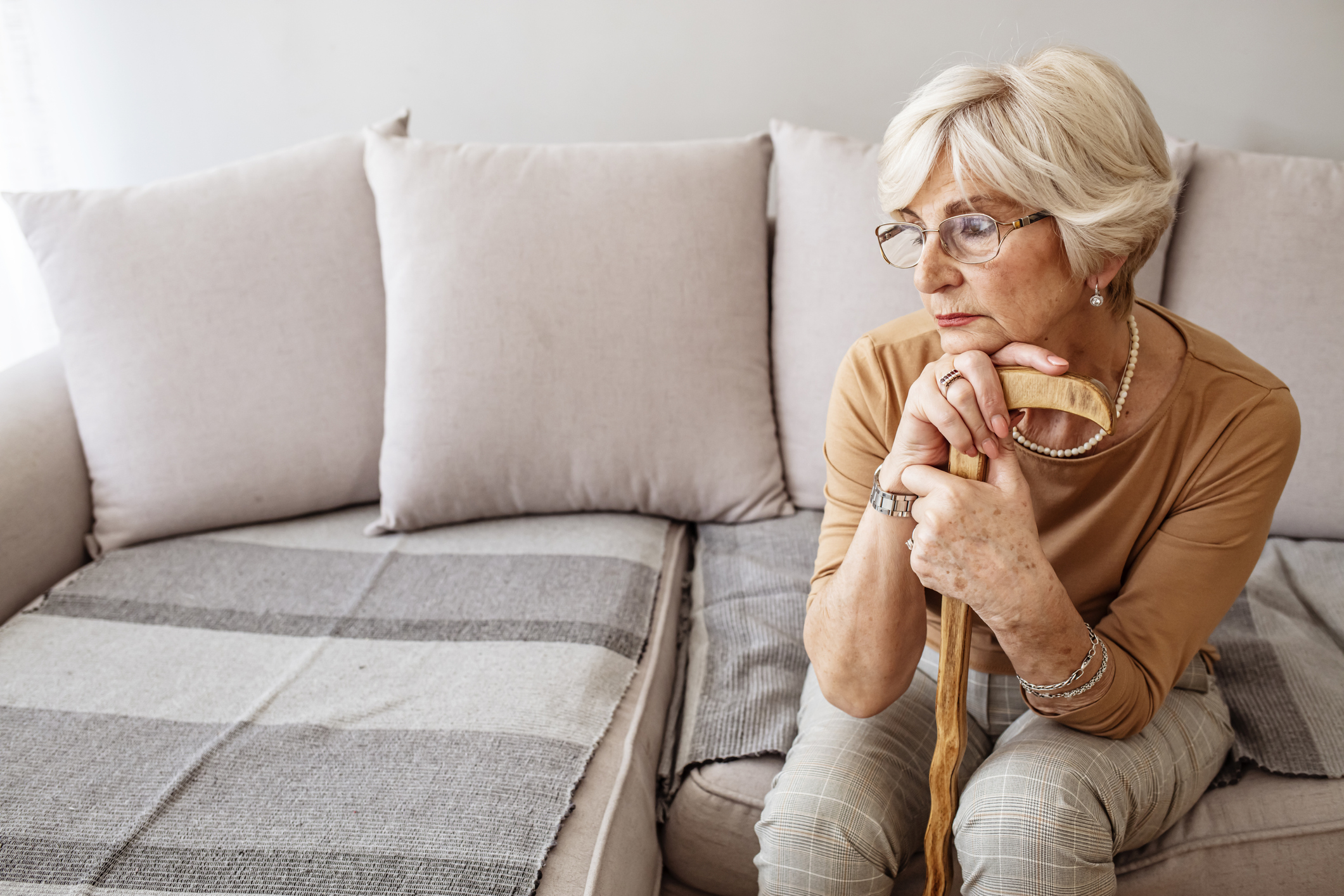Get Easy Health Digest™ in your inbox and don’t miss a thing when you subscribe today. Plus, get the free bonus report, Mother Nature’s Tips, Tricks and Remedies for Cholesterol, Blood Pressure & Blood Sugar as my way of saying welcome to the community!
Frailty: The new #1 one risk factor for dementia

Far too many of us fall for the myth that dementia is just a normal part of getting old, when in truth, losing your cognitive abilities is far from normal.
In fact, losing your memory, becoming confused, having trouble communicating and experiencing personality changes are signs of abnormal damage to or loss of nerve cells and their connections in the brain.
Sadly, numerous factors can put you square in the path of that abnormal damage, such as your genetic history.
Yet, according to ground-breaking research, there’s one factor that could affect your dementia risk in a way that goes far beyond your genes.
The effect of frailty on your dementia risk
That factor is your frailty, something that can be considered, “a common phenomenon that accompanies aging.
People who become frail may begin to lose weight unintentionally, feel fatigued, walk more slowly, have low grip strength and even become prone to falls.
And that research, conducted by an international team from Dalhousie University and Nova Scotia Health in Canada and the University of Exeter in the UK, is proving it’s a killer for your brain.
The study involved analyzing the data from more than 196,000 adults over the age of 60. Each person’s genetic risk of dementia was calculated and frailty scores evaluated.
And it showed hands-down that frailty trumps genes when it comes to dementia.
The research found that:
- Dementia patients were much more likely to have a high degree of frailty before their diagnosis compared with those who did not develop dementia.
- For frail study participants, the risk of dementia was high regardless of their genes.
- Even in those at the highest genetic risk of dementia, that risk was lowest in people who were fit, and highest in people who showed a high degree of frailty.
Overall, frailty raised the risk of dementia 2.5 times!
And get ready because that’s not even the worst news…
The study showed that if you’re both frail and at higher genetic risk, your chances of dementia are six times greater.
In other words, frailty is the path to dementia. And the high genetic risk/frailty combo is the express train.
Preventing old-age frailty
The good news is that while frailty is a phenomenon of aging, it’s not inevitable.
And research is offering us new ways each day to ward off frailty and stay strong and fit, mentally and physically, like:
#1 – Get more of the sunshine vitamin
A study, published in the journal Nutrients, revealed that not getting enough vitamin D in older age may drive the development of frailty.
It’s important to note that the dose required was far more than the RDA, so while spending more time in the sun (unless you have mature or darker skin or live in the northern hemisphere) could help with your levels, it may not be enough. .
#2 – Go Mediterranean
A study from researchers at University College London found that following a Mediterranean diet could help you fight frailty as you get older. The team pooled data from four existing studies of close to 5,800 participants and found that eating Mediterranean slashed the risk of frailty by more than 50 percent over a four-year period.
#3 – Pump some iron
Spanish researchers studied people over the age of 90 who lifted weights twice a week, finding that lifting weights resulted in increases in muscle mass, strength and power.
Even better, people in the study who were unable to stand up or get out of a chair when they started could walk by the end of the three-month study.
Editor’s note: While you’re doing all the right things to protect your brain as you age, make sure you don’t make the mistake 38 million Americans do every day — by taking a drug that robs them of an essential brain nutrient! Click here to discover the truth about the Cholesterol Super-Brain!
Sources:
Reduce frailty to lower dementia – ScienceDaily
Dementia – Mayo Clinic












